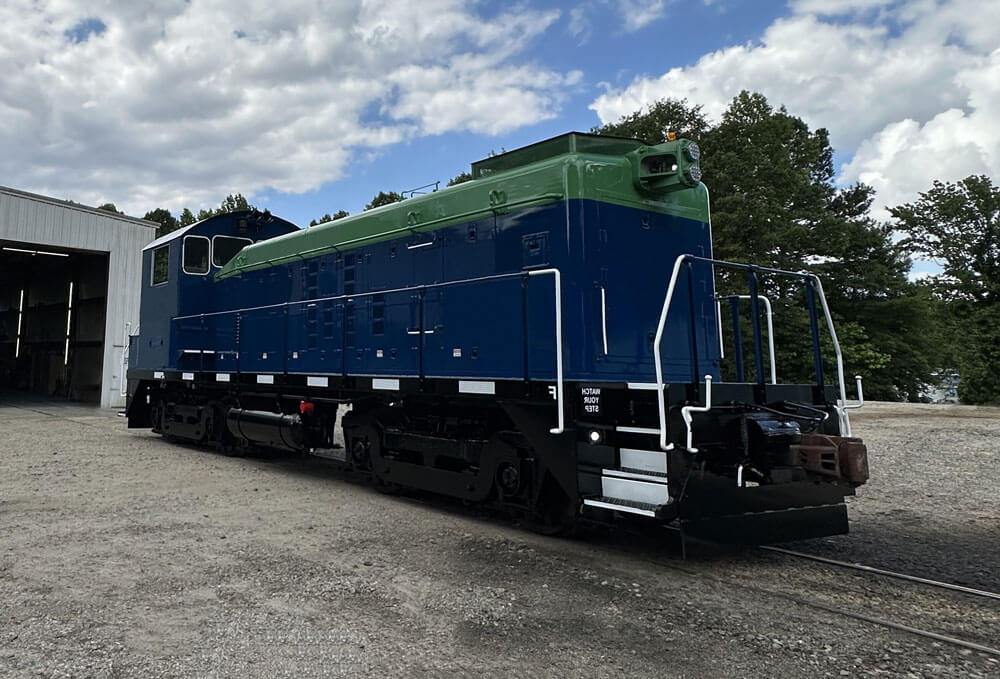U.S. Steel Introduces Battery-Operated Locomotives
2 min read
United States Steel has converted two of its diesel locomotives into battery-operated locomotives, helping reduce emissions for the company’s operations in Pennsylvania.
The two new locomotives were built by Innovative Rail Technologies with investments of $2.3 million from U.S. Steel and additional investment from the Pennsylvania Department of Environmental Protection. The locomotives are located at the company’s Mon Valley Works’ Edgar Thompson and Claiton plants.
Between the two, the locomotives will reduce airborne particulate matter emissions by .385 tons, equivalent to about 7,000 gas-powered cars, the company said. The switch to battery power will also reduce the amount of diesel fuel consumed at the two facilities by 40,000 gallons each year.
“Mon Valley Works is the first industrial site to deploy this technology to reduce small particulate matter emissions from its locomotive fleet,” said Scott Buckiso, senior vice president and chief manufacturing officer for U.S. Steel. “Advancing our Best for All strategy means producing solutions that benefit our customers and communities, people and planet. This includes investing in technological advancements at our facilities.”
The project was made possible from funding through U.S. Steel’s participation in the Driving PA Forward Marine and Rail Freight Movers Grant Program. The initiative works to improve air quality in Pennsylvania to meet the state’s diesel emissions reduction goals.
Railroads Explore Battery-Power, Hydrogen, Biofuels to Decarbonize
Railroads currently provide the most fuel-efficient means of transportation, but locomotives still rely heavily on carbon-emitting diesel fuel. Diesel-powered locomotives also contribute to air pollution by emitting soot, volatile organic compounds, and other harmful chemical compounds that can damage the environment and human health.
Electrification of railroads has been deemed a cost-effective solution to decarbonizing rail transport, with estimates that electric trains are about 50% less expensive to power than diesel-powered trains. Some rail companies have also turned to biodiesel, including Union Pacific, which is currently working to determine the feasibility of a 100% biofuel-powered locomotive fleet. Meanwhile, others have explored the use of hydrogen power, which allows trains to run on electricity in non-electrified areas.
Innovative Rail Technologies reportedly aims to provide an affordable option for corporations looking to meet carbon-reduction goals with its zero-emission, lithium-ion battery-operated freight locomotives.
“We are proud to bring this innovative and sustainable technology to U.S. Steel’s Mon Valley Works,” said Ira Dorfman, principal at IRT. “Battery propulsion technology is already in use throughout many modes of transportation, and rail transportation is the next step.”





